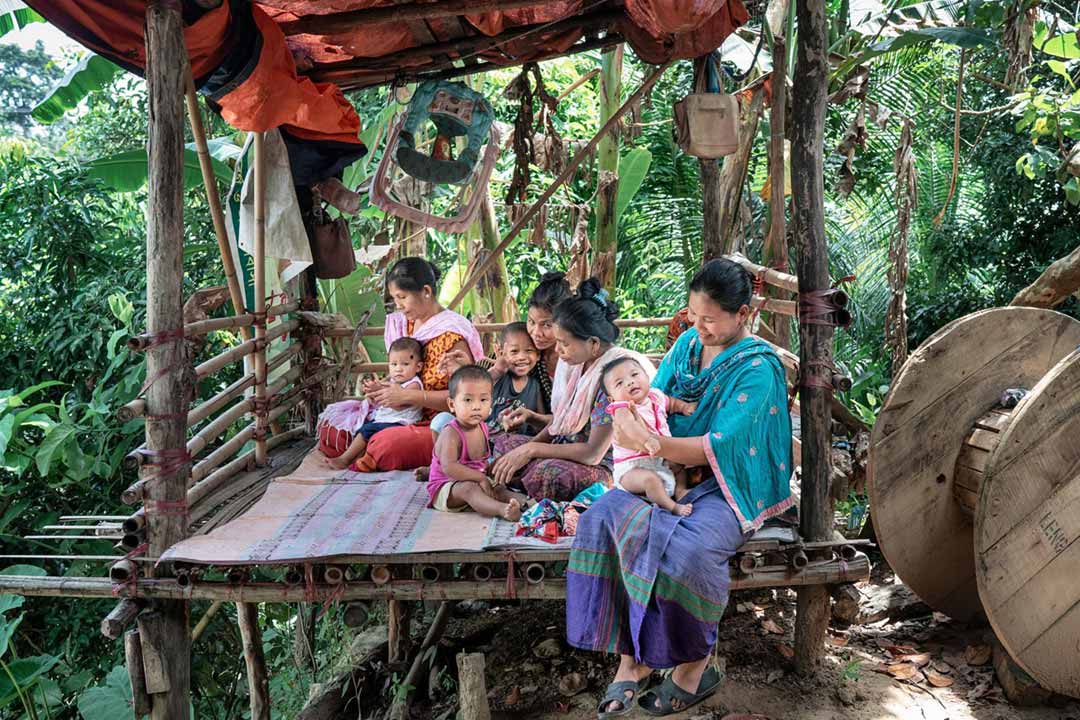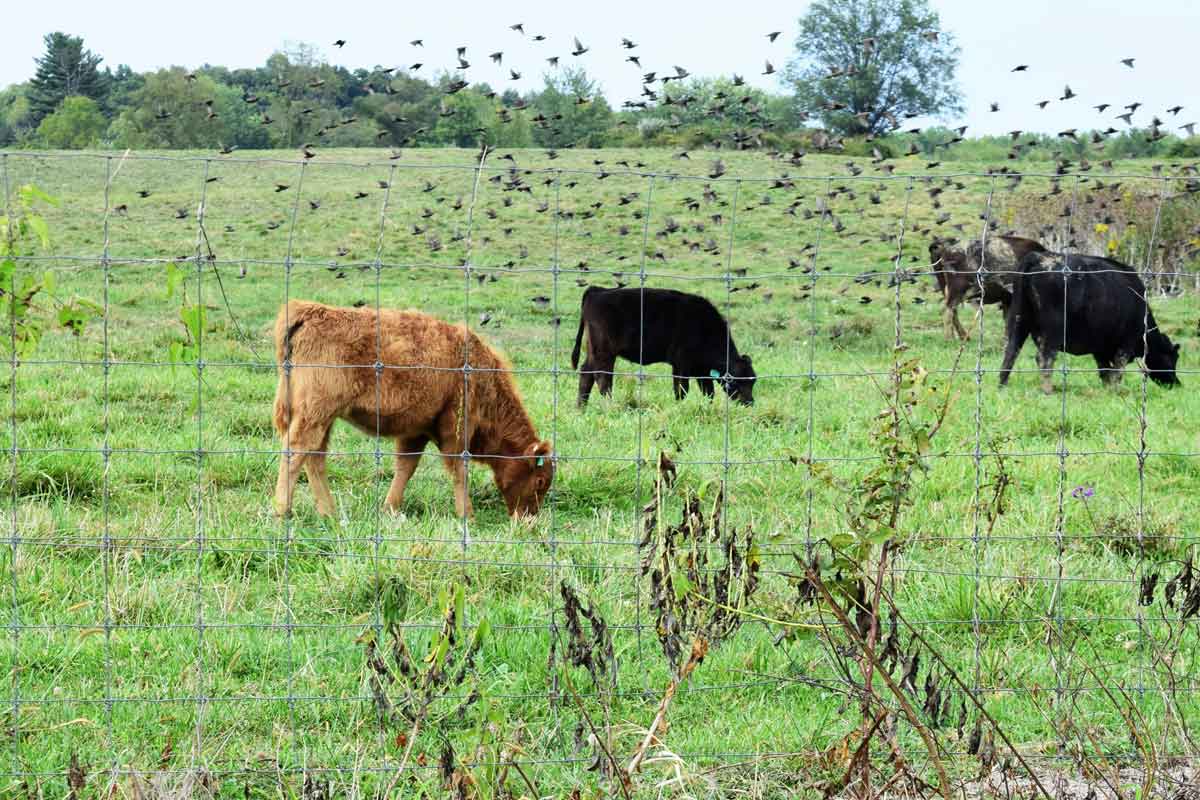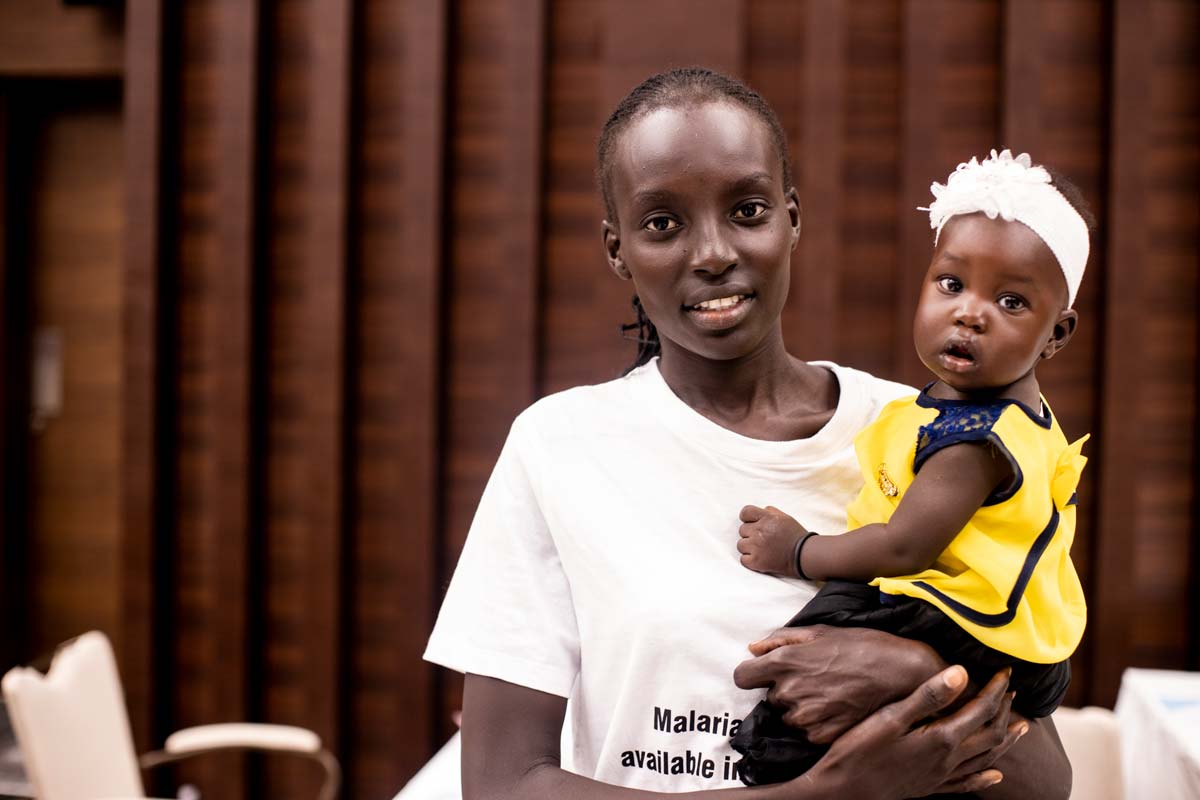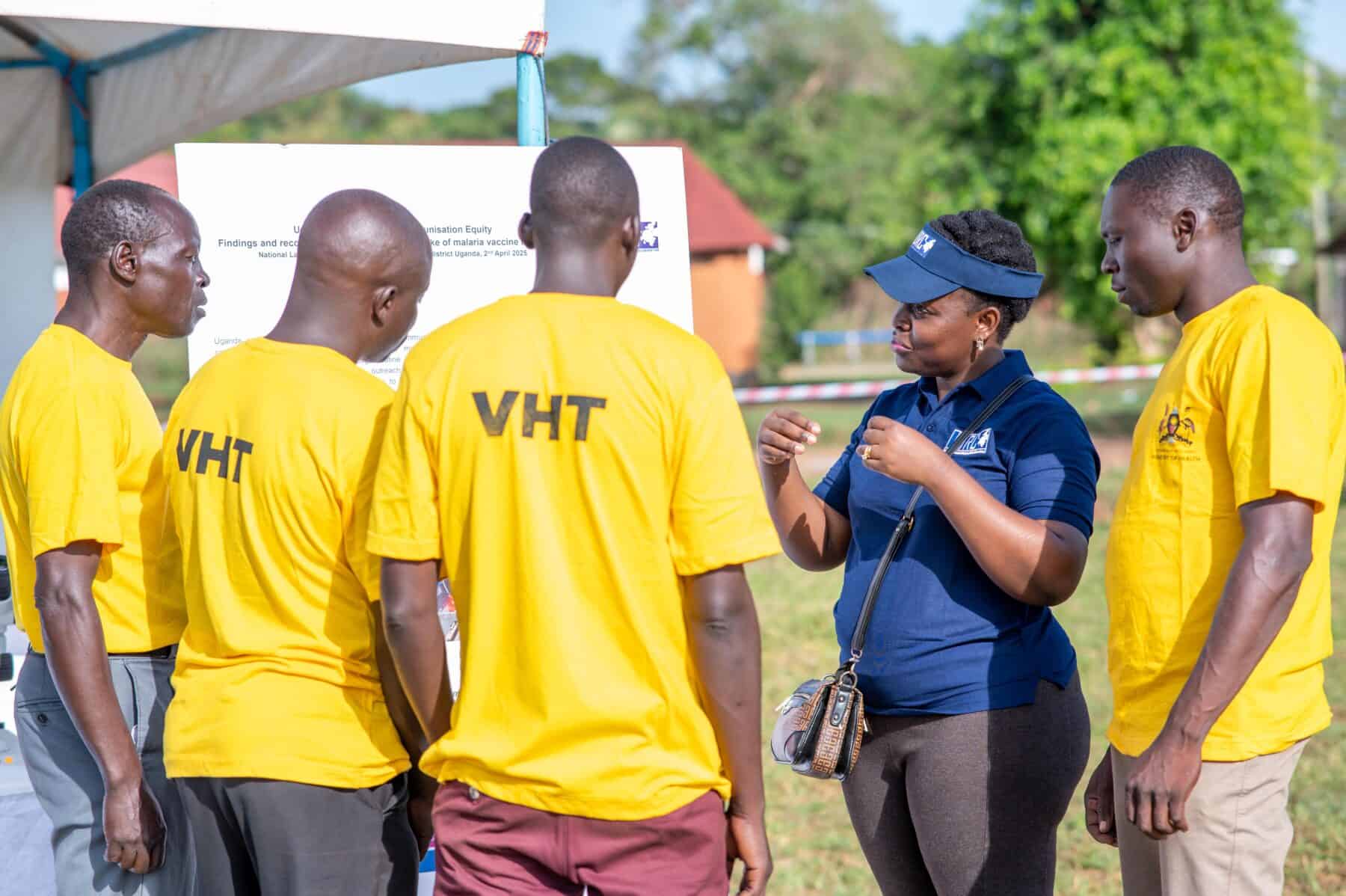Breaking down barriers: UNICEF volunteers lead sanitation survey across Bangladesh
Young volunteers gain new skills and give back to their communities.
- 19 January 2021
- 4 min read
- by UNICEF Bangladesh
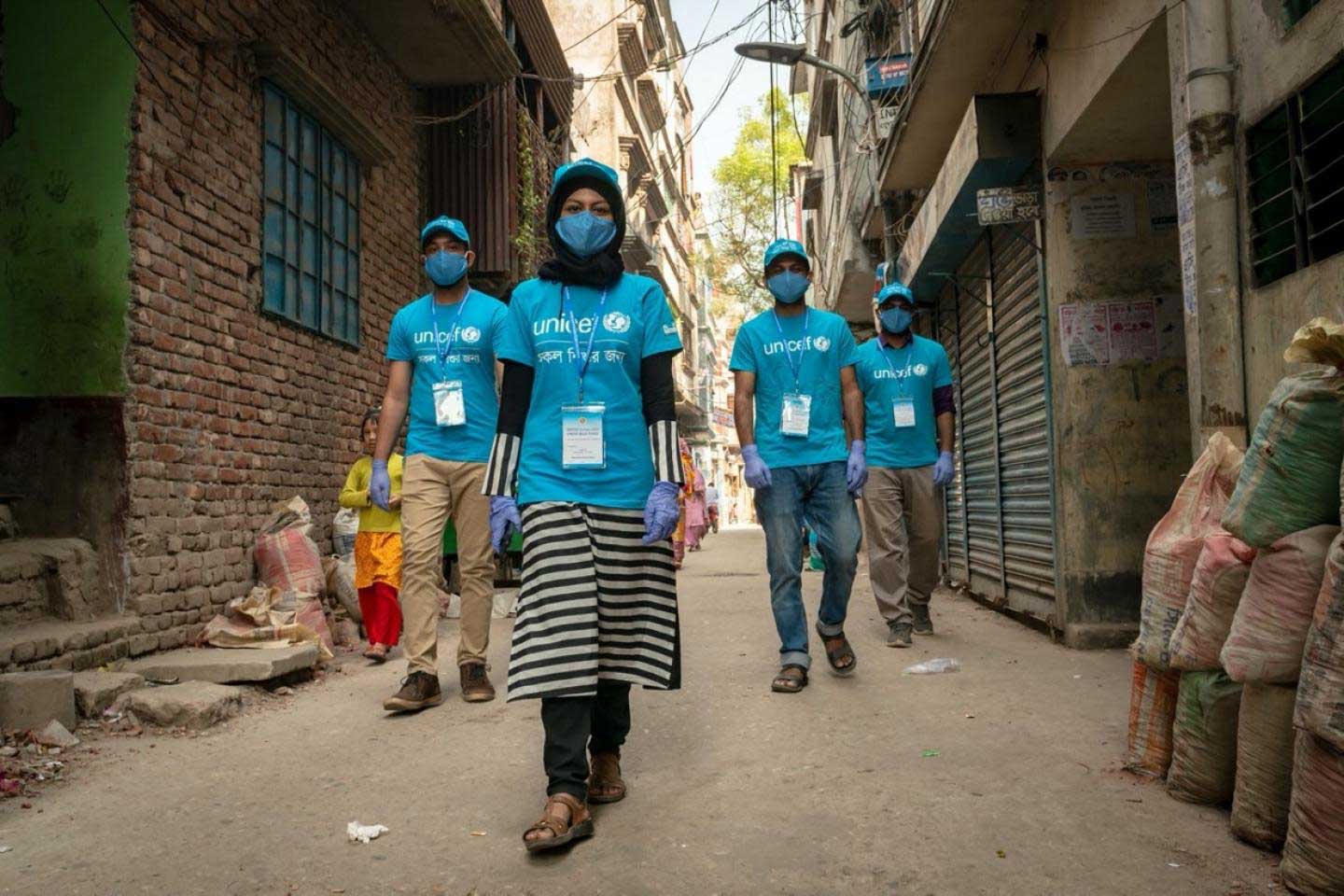
Humayra Rezyona is not your typical 23-year-old. When asked to conduct a survey on sanitation in Dhaka city, she jumped at the chance. “I am a very curious person. I wanted to learn about the conditions in my country. If I stay at home, I won’t understand anything,” enthused Humayra.
Over 700 children die every day from diarrhoea caused by unsafe water, sanitation, and poor hygiene. Over half the world’s population uses sanitation services that leave human waste untreated, threatening human health.
Sanitation is a human right. However, for many people in Bangladesh, hygienic toilets and sewage systems are still out of reach. Gaps in sanitation data add to the challenge of improving access to safe sanitation and tracking national progress.
“Recent sanitation surveys focus only on people’s access to toilets and sanitation coverage. With this survey, we examined how human waste is safely managed in people’s homes in five specific areas: containment, emptying, transportation, treatment and disposal/reuse of human waste. If there are weaknesses in any part of the sanitation service chain, human health is immediately at risk,” explained Adnan Syed Adnan Ibna Hakim, Water, Sanitation and Hygiene (WASH) Officer, UNICEF Bangladesh.
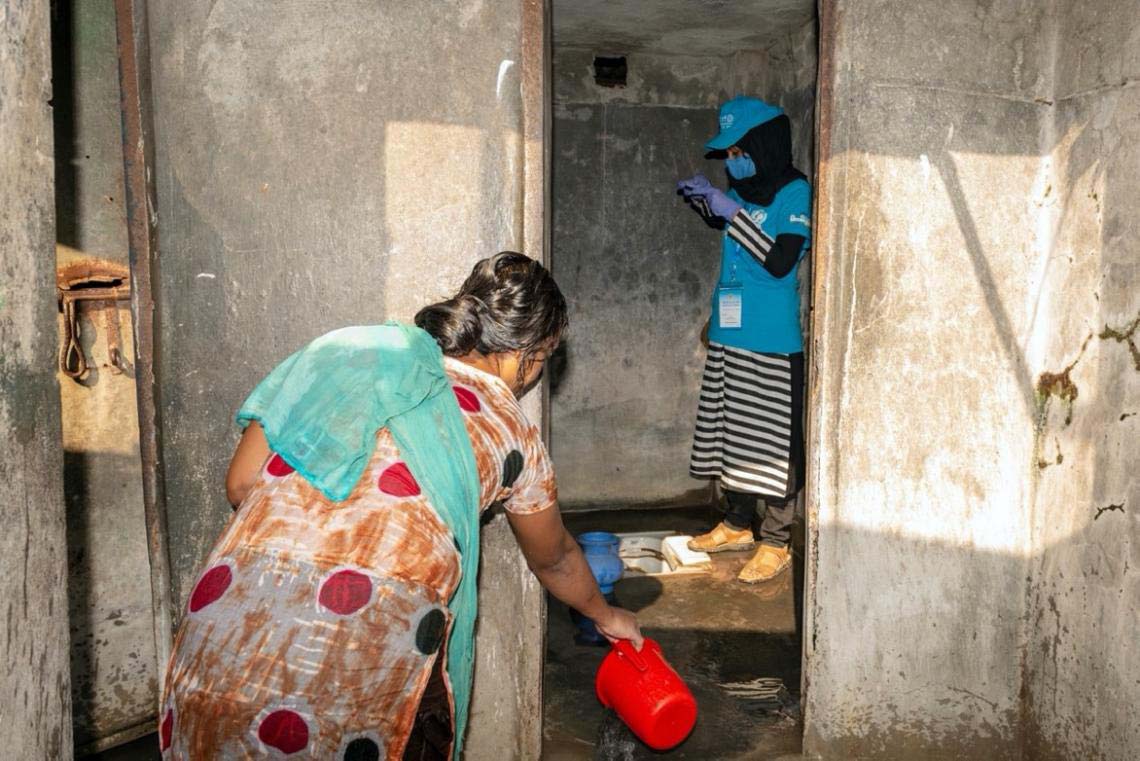
@ UNICEF Bangladesh/2020/Satu
Breaking taboos
“Sanitation is a taboo subject in Bangladesh. I certainly got some funny reactions when I told people I wanted to survey their sanitation system and talk about their pees and poops!” laughed Humayra.
Before conducting the survey, Humayra and 61 other UNICEF volunteers completed a three-day training with the Department of Public Health Engineering (DPHE) and the UNICEF WASH team to learn about sanitation systems, survey tools, data collection and communication.
“I felt that if they didn’t train us on how to answer people’s questions, I would have been quite nervous. But they taught us well and I was confident when I needed to convince people to take part,” said Humayra.
The volunteers surveyed 3,425 households in both rural and urban parts of Bangladesh. They interviewed household members, conducted physical inspections of toilets and measurements of pit latrines, then entered the data on a mobile phone application.
Building the evidence base for safer sanitation
Despite the challenges of conducting a survey on a sensitive topic, Humayra and her peers are convinced this is important work that can help their communities in the future.
“I learned that not one household I surveyed had access to a septic tank. Generally people connect their drain pipes to the nearby river which is heavily polluted, the water is totally black,” said Humayra.
The rapid growth of urban populations and slum areas in Bangladesh make the provision of toilets and sewerage systems a challenge. But safe options can be provided.
Have you read?
“Well maintained and constructed sanitation systems at people’s homes that safely manage waste treatment, disposal and safe re-use, offer a viable alternative to sewerage systems. Understanding people’s access to safe sanitation is critical to improve services and bring health benefits to communities,” said Tushar Mohon Shadhu Khan, Additional Chief Engineer, Planning, DPHE.
The results of the survey will help Bangladesh to measure its progress towards achieving Sustainable Development Goal 6.2, which aims to achieve access to adequate and equitable sanitation and hygiene for all and end open defecation by 2030.
“Despite the challenges, Bangladesh has made substantial progress. It is almost open defecation free and social norms have changed a lot in recent decades,” said Khan.
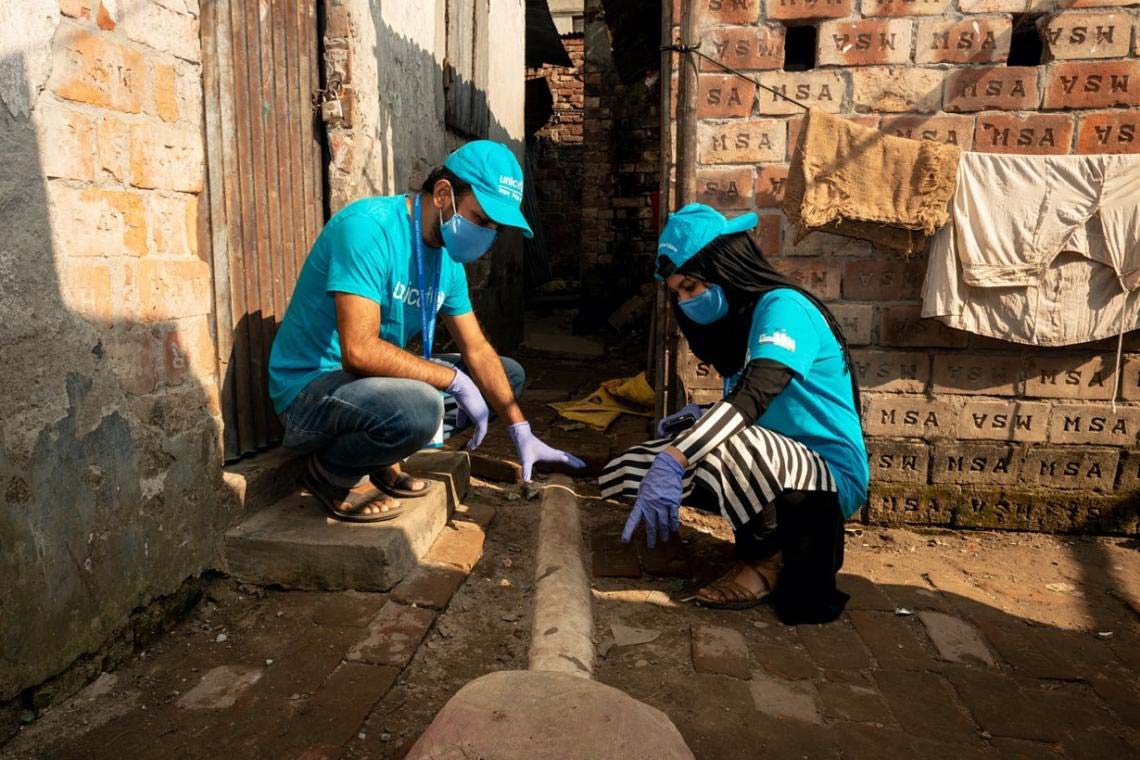
@ UNICEF Bangladesh/2020/Satu
Volunteers shine in their communities
Humayra is one of 33,000 UNICEF volunteers registered to support campaigns which benefit millions of children across Bangladesh.
Volunteers can now add ‘survey enumerator’ to their diversified skillset, while making a difference in their communities.
“It was a great experience for me. I gained practical knowledge and it made me confident. I discovered I can easily talk to strangers. I’m sure this will help me a lot in the future,” said Humayra.

